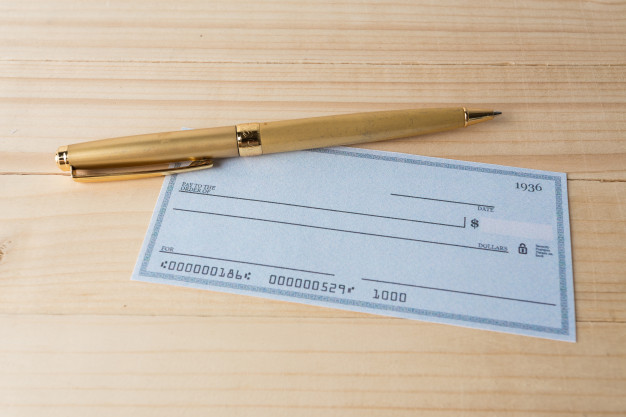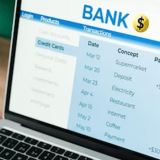Reasons Why A Check Can Bounce Even If You Have Sufficient Funds in Your Account?

Like many small and medium business owners, you’re probably already using checks to pay off many of your bills. There are many good reasons why you should use checks, such as the security offered by using checks, and the availability of a paper trail for easier accounting purposes. In fact, when you order your business checks online, you probably think that as long as you have sufficient funds in your account, you won’t encounter any problems when it comes to cashing your checks.
To your surprise, one of your suppliers called you and complained that your check bounced! How can this be? You made sure that you had enough funds in your business account to cover your expenses. Actually, there is more than one reason why a check can bounce, and insufficient funds are only the most common reason.
Here are five other reasons why your check could have bounced, and how you can fix it:
Reasons Why A Check Can Bounce Even If You Have Sufficient Funds in Your Account:
1. Your Signature is Different or Placed in the Wrong Location:
Over the years, your signature has probably changed. In the beginning, you might have scribbled out a long and complicated signature, but as time passed, you probably started using a shorthand version of your signature. Do you even remember the exact signature that you used when you opened your business checking account?
Any variations on your signature can cause your check can bounce, as most banks are strict when it comes to the signature used for checks. If you notice that you’re already using a signature that’s vastly different from your original signature, you should go to your bank and get your records updated to accept your new signature.
Even the location of your signature is important! You might have been in a hurry and you accidentally signed the check somewhere other than the signature line. If this is the case, you have no other choice than to replace the check with one that’s signed correctly.
2. The Check was Damaged in Transit:
Like most people, you probably sent your checks inside an envelope through direct mail. The problem is that most courier sorting and delivery systems aren’t made for envelopes! There are so many things that can go wrong, whether it’s bad weather that can cause water damage to your check or a lazy employee that accidentally rips your check during delivery.
If you want to protect your checks in transit, you might want to pay extra to label your envelope as “first-class”. This ensures that your check will be protected during transit and will arrive at the recipient safely.
3. The Words Don’t Match:
If there is any difference at all between the words and the numbers written for the amount payable, the bank will not honor your check. If you wrote the numbers in the words portion of words in the numerical portion of your check, it will also cause your check to bounce.
Just like with writing down your signature incorrectly, the only way to solve this is by writing a new check and ensuring that the words and numbers are written down exactly and precisely.
4. Corrective Writing/Editing on the Check:

Every now and again, you might make a mistake writing down information on your check.
You might think that scribbling it out, writing the correct information, and countersigning the correction might be enough to make the check count.
While there are still some banks that will accept checks with corrections on them (assuming that they are minimal corrections and it’s not on the amount payable line), most banks will actually reject any checks that have any form of corrections on them. It’s the safest way for banks to prevent check fraud, as one of the most common types of check fraud involves manually changing the name of the recipient or the amount payable on the check.
If you have a check that needs to be edited, you can try calling your bank and asking them whether they will still accept your check depending on your corrections. However, chances are that they won’t accept the check anyway, so you should write out a new one.
5. Even the Dates Count:
Every part of your check counts! Even something as simple as mistakes in the date written on your check can cause your check can bounce.If the date you have written is not readable or in the wrong format (day-month-year vs. month-day-year), it can cause your check to be rejected.
Read Also:










